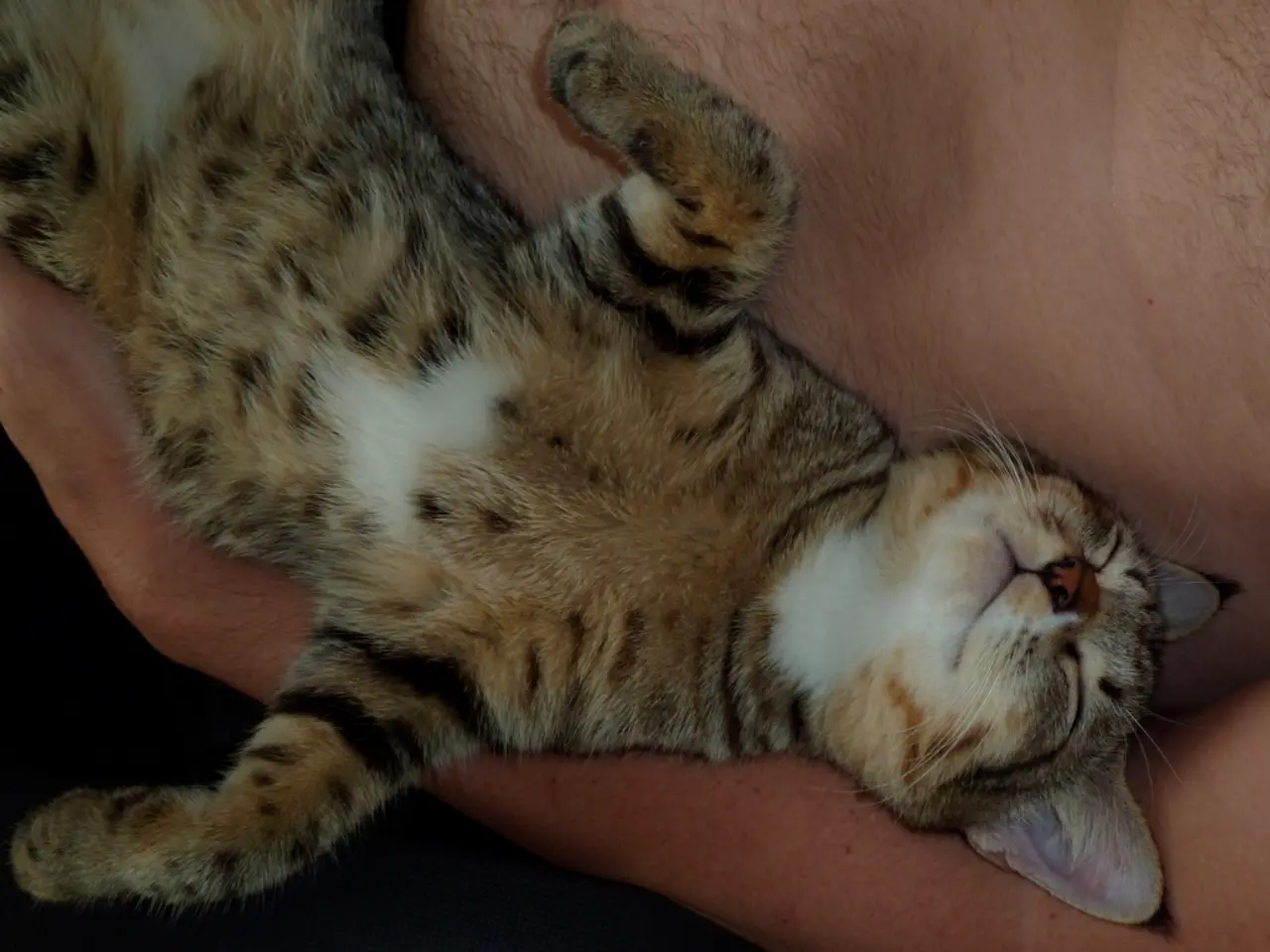Cats in Dusseldorf undergo castration following neutering procedures
In the city of Düsseldorf, the cat protection association is urging all owners of free-roaming cats to comply with the cat protection regulation, which has been in effect since December 26, 2016. This regulation aims to reduce the number of cats, prevent territorial fights, and protect cats from harm and pain.
The regulation applies to the entire city area and is enforced by the Institute for Consumer Protection and Veterinary Affairs. Violating the cat protection regulation can result in a fine of up to €1,000.
The regulation requires outdoor cats to be clearly and permanently identified through a microchip or a tattoo. Cat owners are also encouraged to have their cats spayed or neutered, as female cats can have up to two litters a year, with up to seven kittens each. This highlights the need for spaying and neutering to prevent reproduction and control the city's cat population.
Identification of cats can be done via microchip or tattoo, and the procedure is straightforward. Cat owners in Düsseldorf must register their outdoor cats with the Consumer Protection Office of Düsseldorf, providing details such as microchip or tattoo number, owner's name and address, reproductive status, and identifying features.
Klaus Meyer, director of the Institute for Consumer Protection and Veterinary Affairs, praises the engagement of cat protectors in improving awareness and sharpening problem awareness.
The cat protection brochure is available in municipal facilities, veterinary practices, pet stores, and animal shelters. The brochure explains why outdoor cats should be spayed, neutered, and identified, and what owners need to do organizationally. It also highlights the stress unneutered outdoor cats experience due to the mating instinct, often roaming for days in search of mates.
It is important to note that while there is no specific legal requirement in Düsseldorf for the registration, identification, or spaying/neutering of outdoor cats, general German and EU regulations emphasize microchipping and rabies vaccination for health and identification purposes, especially if the cats are transported or moved.
For more information about the cat protection regulation in Düsseldorf, contact the Institute for Consumer Protection and Veterinary Affairs at 0211-8993242. The flyer for the city's cat protection regulation can be found at https://www.dusseldorf.de/umwelt/tierwohl/katzenschutz/.
[1] German Federal Ministry for Food and Agriculture [2] European Commission - Pet Travel [3] German Federal Ministry of Health [4] German Federal Ministry of Food and Agriculture - Animal Welfare [5] German Federal Ministry of Food and Agriculture - Animal Health
- The cat protection regulation in Düsseldorf, while not requiring it explicitly, aligns with general German and EU regulations in emphasizing microchipping for identification purposes as specified by the European Commission - Pet Travel.
- Apart from the local cat protection regulation, health-and-wellness policies and legislations, such as those of the German Federal Ministry of Health, provide guidelines on rabies vaccinations for cat identification and health purposes, particularly for cats being transported or moved.
- The cat protection policy-and-legislation in Düsseldorf, enacted by the Institute for Consumer Protection and Veterinary Affairs, intersects with broader general-news topics like politics, as the engagement of cat protectors and the city's cat population management can be considered a significant aspect in health-and-wellness and animal welfare discussions in the city, similar to practices advocated by organizations like the German Federal Ministry for Food and Agriculture - Animal Welfare.




